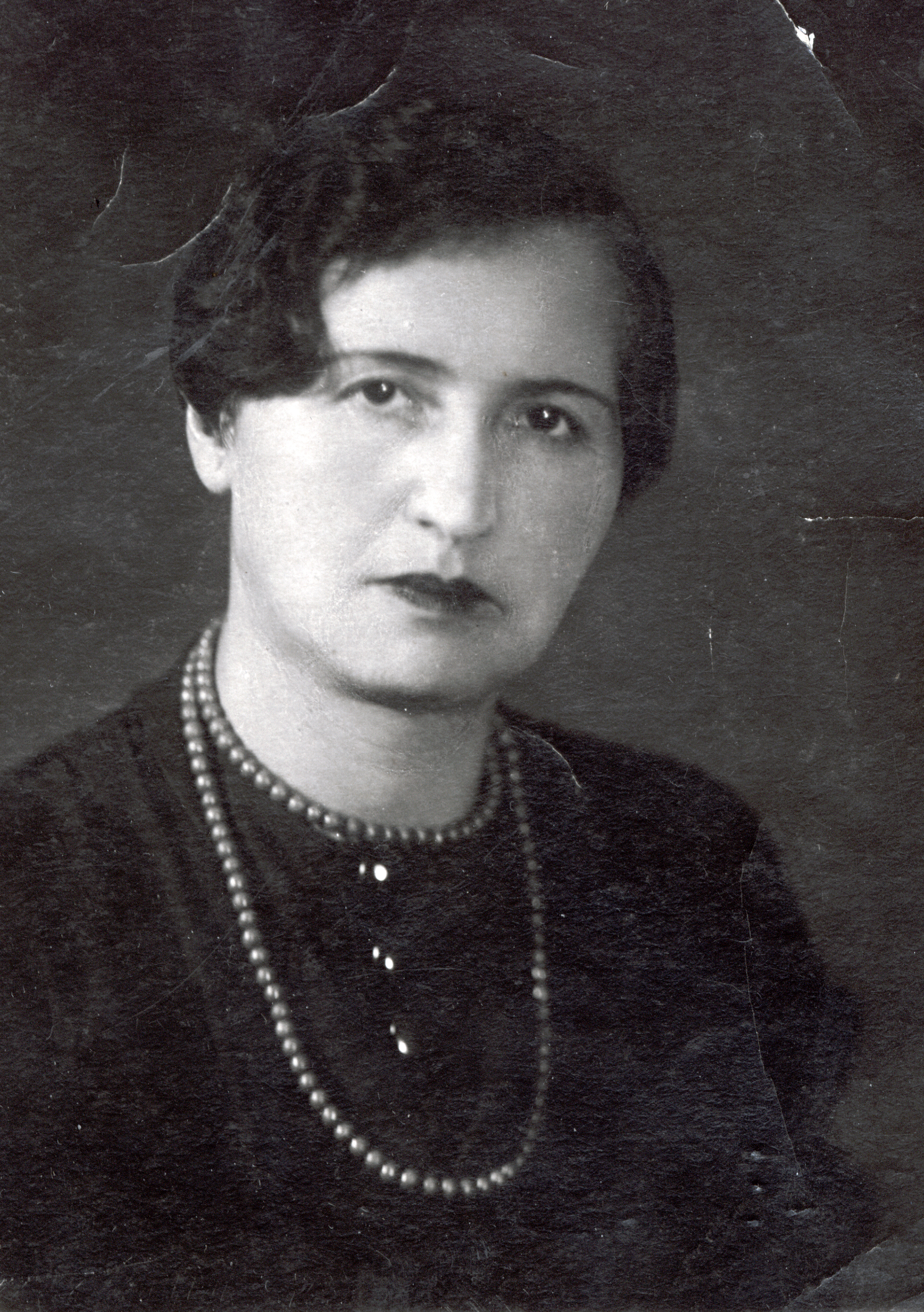Rakhil Averbukh
This is my mother, Rakhil Averbukh, nee Gorovits-Vaisbrot. The photo was taken in Kiev in 1939.
My mother was born in the town of Zamos, Lublin province, in 1891. Her father was an official rabbi in Zamos. This town is located in Poland now, but at the time it was part of the Russian Empire. My mother finished Russian secondary school without attending every class because being a religious Jew and the daughter of a rabbi she couldn't go to school on Saturdays. Nevertheless, she finished the Russian school with a gold medal, that is all excellent marks.
She met my father at the wedding of their relatives in 1911: my father's niece and my mother's cousin got married. After meeting at the wedding my parents kept up a very active correspondence over the course of three years. We kept those letters at home in two stacks tied with ribbons until the war. All their letters were written in Yiddish. I glanced through them often, not understanding what they said, but judging from the dates they exchanged letters practically every day. They got married in spring 1914. Between themselves my parents spoke Yiddish, but with us only Russian. My mother spoke Russian very well. I believe she knew Russian better than me. She also knew Polish very well. When the first Polish refugees arrived in Kiev in 1939, my mother could communicate with them easily. My mother also spoke German fluently.
My mother was always called Madam Averbukh, and all young girls tried to dress just like Madam Averbukh. Here is how she dressed: she sewed a jacket for my brother from an old overcoat, then made from it rags for polishing the floor. But later, mother washed it, excuse me, in urine, bought some faille de Chine and sewed a dress for herself - and everyone admired it! My mother was a wonderful needlewoman despite the fact that her forefinger on the right hand was defected due to sepsis right after my birth. The disease started with her right hand and doctors wanted to amputate it, but my mother refused to have her hand amputated. She said she could never survive with two children without a hand. She would rather die and have her husband marry another woman who would take good care of her children. Such was my mother's character. My mother was killed in Babi Yar in 1941.
